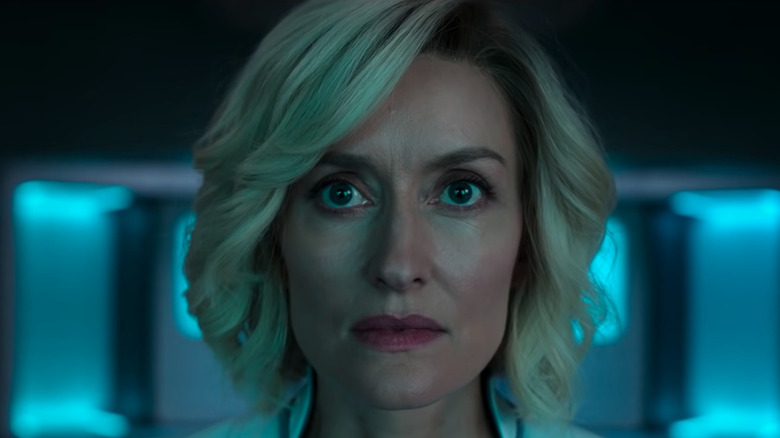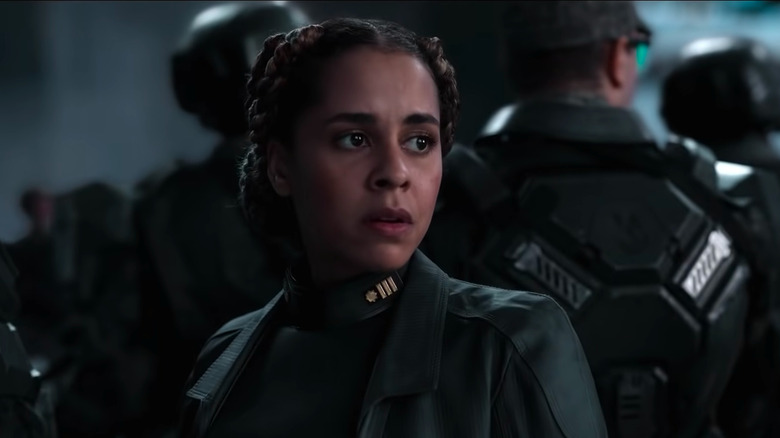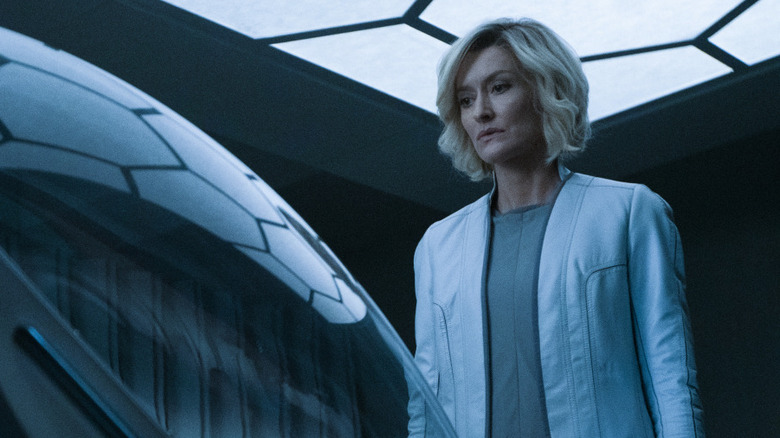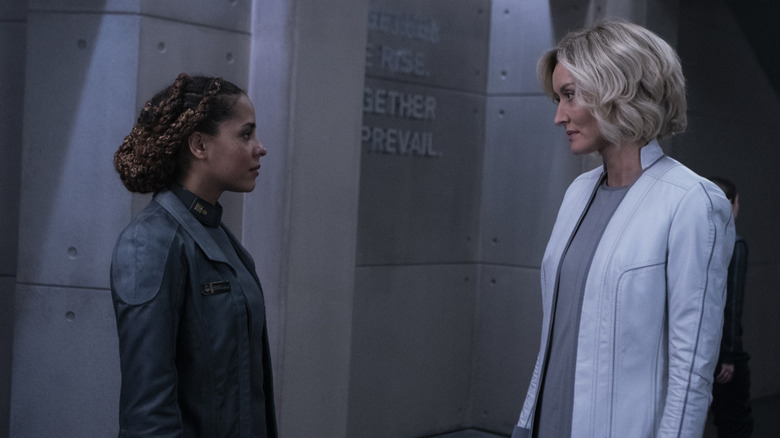Halo's Natascha McElhone And Olive Gray Break Down Their Characters And Their Complex Relationship - Exclusive Interview
Paramount+'s epic TV adaptation of "Halo," based on the hit video game series of the same name, depicts a 26th century world where humans are locked in conflict with each other – and with a mysterious group of aliens called the Covenant. Super-soldiers known as Spartans travel through space to take on the deadly alien forces, but these powerful fighters weren't born, they were made. The Spartans are the work of Dr. Catherine Halsey, and she is fiercely protective of her invention and single-minded in her efforts to improve them. When Dr. Miranda Keyes, one of her fellow scientists on the base where she works on the planet Reach, wants to lay claim to an alien artifact that one of Dr. Halsey's Spartans, Master Chief John-117 (Pablo Schreiber), acquired on his last mission, the tension between the two is palpable, a tension made all the more intriguing when it becomes clear that Dr. Keyes is Dr. Halsey's daughter.
Natascha McElhone and Olive Gray play Halsey and Keyes, respectively, as women passionately dedicated to their beliefs and the integrity of their work. While the show is set before the start of the games, fans will recognize the determined, uncompromising Dr. Halsey. Less familiar will be Dr. Keyes, who was a soldier, not a scientist, in the game universe. By reimagining her as following in her mother's professional footsteps, the series has increased the stakes for both characters and created an exciting opportunity for future drama in a world where each characters' work is of the utmost importance to the humans' war with the Covenant.
In an exclusive conversation, Looper spoke to McElhone and Gray about their experiences with the "Halo" games, their perspectives on their characters, and how Halsey and Keyes' relationship will evolve during the show's first season.
Their experience with Halo goes back to the games
Had either of you played the "Halo" games before joining the series?
Olive Gray: I had. A lot of my friends growing up were super into "Halo," and so I have strong memories of spending many days in rooms, in my friends' parents' living rooms, all of us kind of – well, not me – but them playing "Halo" and me sitting and observing this fascinating and intense game.
What about you, Natascha?
Natascha McElhone: I think my first collision with "Halo" was about 20 years ago when my son was 1 and my husband, we were shifting it. I was working, he was working and he was looking after my son, and I came into the office to take over and saw that they were playing "Halo" together, my tiny little baby and him. It's in our DNA at this point. My sons love it, and it's very exciting. I have suddenly — I got some kudos in the house when I said I was going to be playing Halsey.
The show's versions of Miranda Keyes and Catherine Halsey
Olive, your Miranda Keyes is very different from the character in the games and the lore. How would you describe her?
Gray: Miranda is somebody, similarly to Halsey, who is very different in the way that she operates to the environment that she is operating in. She is a scientist. She is compassionate and ridiculously hardworking and ambitious. She has a really strong moral compass and a strong sense of justice. She really wears her heart on her sleeve, which I think is probably the thing that makes her so different, maybe, to the world that she's in and this very often cold and logically facing environment. She is incredibly compassionate and led by her compassion.
Natascha, your Catherine Halsey, is a little more similar to the character in the games. She's driven by discovery. She's really protective of the Spartans. Were there ways you chose to make your version in the show different from the one in the games?
McElhone: I think the one in the games was definitely the platform off which to build a more 3D version of her for TV. Maybe, eventually, there's another dimension to her as [might] be discovered through the season, that there's a quantum element to her thinking. She's a scientist first and foremost, she is an inventor, and that's what she cares most about, much more than human interaction or relationships. She feels that they get in the way of progress, and fighting is entirely pointless. She wants to end war and get to the next level of existence.
Their characters initially seem like rivals, but are they really?
Your characters share a very personal connection as mother and daughter, but in the show, you're introduced first as rival scientists. How will the rivalry impact the show and your characters' relationships as we go on?
McElhone: The characters probably have a different perspective on this. In fact, all the characters have a different perspective on the Halsey-Miranda dynamic. The Spartans have one perspective, Miranda does, I do. For Halsey, it's actually not deeply complicated. She's made a choice to prioritize her work and her responsibility for having built the Spartans, and now in the process of building Cortana, that's where her head is.
Gray: Firstly, I think that if there's any rivalry, I don't know that it's an equally felt thing for Halsey and Miranda. Rivalry is the top layer of a thousand layers in Miranda's head and in Miranda's experience of the relationship with her mom.
It's really interesting because a lot of people have used that word. In a way, it's interesting [how] that was the initial perception of their relationship, because it gives us a long way to go in the show because there are so many more complex and fascinating and painful and interesting layers to their relationship and the way that they operate and all of that.
McElhone: Yeah, it feels a bit reductive, but it is interesting. That is the consensus, by the way, that they are one another's rivals. I was trying to trace back when we played that, but then I realized it's mostly what people say.
The first episode of "Halo" is now streaming on Paramount+, with new episodes released on Thursdays.
This interview has been edited for clarity.



